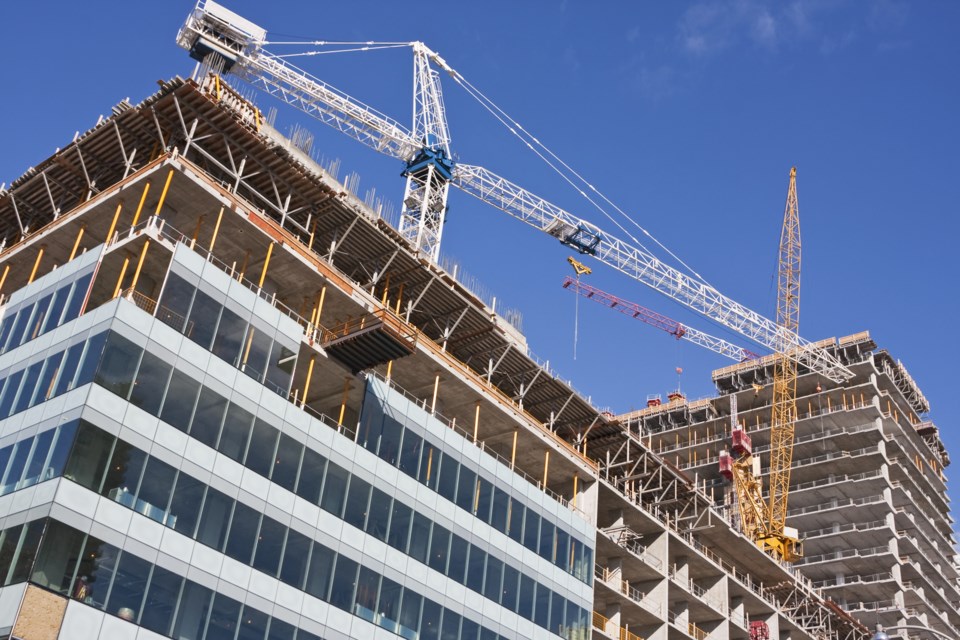Findings from a new construction report paint a stark picture for B.C. contractors as investment in the province’s industrial, commercial and institutional sectors is down 10.9 per cent since February 2020, according to the BC Construction Association (BCCA).
In addition, the non-residential building price index saw an increase of 19.6 per cent.
The BCCA Fall 2022 Industry Stat Pack, combined with findings from a new economic and policy report published Oct. 25 show the constraints on the construction industry as a result of material and labour costs.
According to Chris Atchison, BCCA president, the report outlines the pressures faced by the construction industry. These pressures are expected to continue to exacerbate the situation in the foreseeable future.
The province's construction industry accounts for $25.4 billion, or 9.7 per cent, of the province’s GDP, and the industry’s dollar value grew by 10 per cent as a result of rising prices, despite the lack of demand, the report says. Compared with five years ago, construction has seen an 80 per cent increase in project value.
However, this increase in project value is a false positive, Atchison says.
“The value is also considering the increased cost of labour, the increased cost of materials and the increased borrowing costs,” he said.
“From a 10-year period, factoring in all of those things, we're not that much further ahead than we were in 2012.”
Contractors are having a difficult time balancing the rising cost of labour and materials with the declining commercial demand, the report says.
In terms of employment, the industry is seeing its lowest unemployment rate since 1976 at 5.7 per cent, creating more competition for those looking for available labour. In addition, wages have increased 26 per cent since 2017 and 11 per cent since last year, according to the report.
These uncertain times are also highlighting the need for payment legislation from the provincial government in order to ensure prompt payment. Contractors can wait up to 90 to 120 days to get paid, increasing their financial risk and the danger of bankruptcy.
“We're still waiting on prompt payment legislation, which is inexcusable at a time where we're heading into a period of greater economic uncertainty in 2023. Lawmakers in British Columbia haven't undertaken a measure to protect and provide some certainty for the contractors and for the skilled workforce that we are trying to attract and retain,” Atchison said.
Overall, the number of industrial, commercial and institutional construction companies has sustained an increase, but the number of tradespeople has decreased by 5 per cent over the last three years. During this time, the average size of companies decreased by 7 per cent to an average of 6.53 workers. As of now, 92 per cent of companies have fewer than 20 employees.



